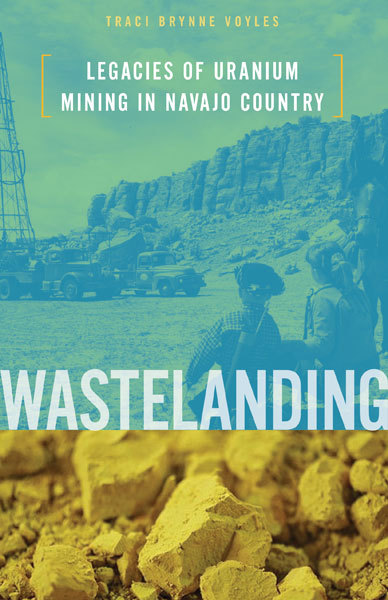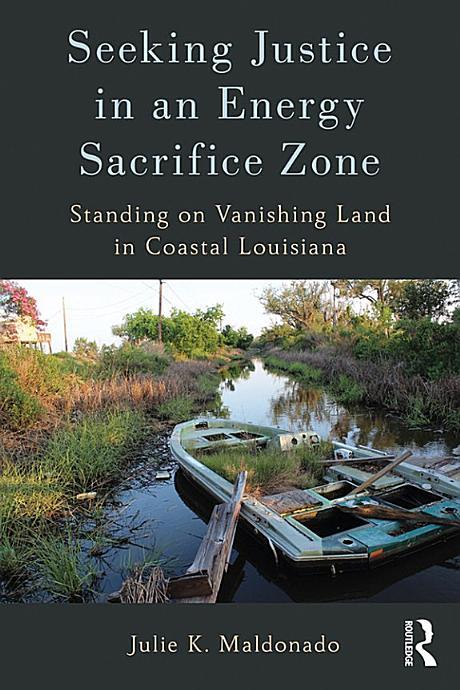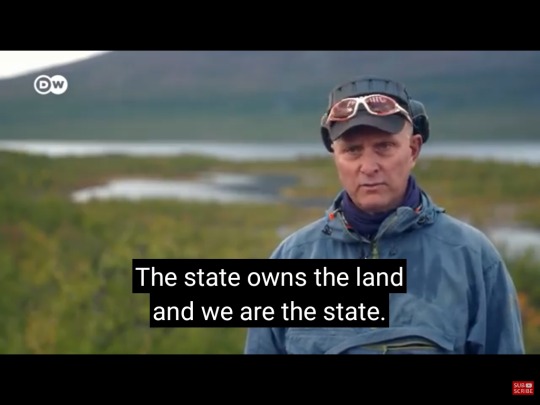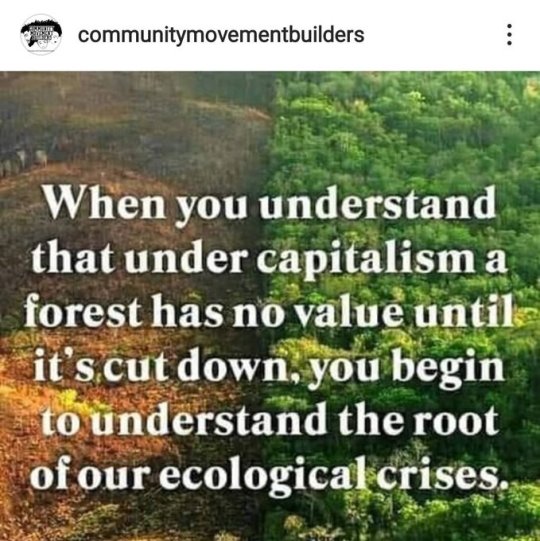#extractivism
Text
Breaking news from Panama! 🟢
In a historic vote, the nation’s highest court today ruled the Minera Panamá mining contract for an open-pit mine unconstitutional, marking a WIN for biodiversity, local communities, and our planet.
Panama has an opportunity now to be a leader in safeguarding precious ecosystems and protecting biodiversity. This ruling champions the rights, voices, and well-being of local communities over profit-driven interests.
This victory is also a beacon of hope for our planet’s future. Safeguarding irreplaceable ecosystems like these is critical to combatting climate change and biodiversity loss. Congratulations to the people of Panama, who overwhelmingly rejected profit over planet. We continue to stand with you!
Video credits:
Collaboration between @duletvindigena @waguafilms @mullu.tv & Passu Creative Community
Indigenous Protester - TV indígena and waguafilms
Great Green Macaw - Hans Norelius, CC BY 2.0
Gemini's Dart Frog Jaime Culebras / @photowildlifetours
#PanamaTeQuieroVerde
#PanamáValeMásSinMinería
#panama#central america#latin america#abya yala#environmental justice#climate justice#ecology#anti imperialism#extractivism#neocolonialism#anti colonialism#indigenous rights#degrowth#i'm so happy for my country 😭❤️
522 notes
·
View notes
Text
‘Extraction and assimilation go together. Colonialism and capitalism are based on extracting and assimilating. My land is seen as a resource. My relatives in the plant and animal worlds are seen as resources. My culture and knowledge is a resource. My body is a resource and my children are a resource because they are the potential to grow, maintain, and uphold the extraction-assimilation system. The act of extraction removes all of the relationships that give whatever is being extracted meaning. Extracting is taking. Actually, extracting is stealing—it is taking without consent, without thought, care or even knowledge of the impacts that extraction has on the other living things in that environment. That’s always been a part of colonialism and conquest. Colonialism has always extracted the indigenous—extraction of indigenous knowledge, indigenous women, indigenous peoples . . . Children from parents. Children from families. Children from the land. Children from our political system and our system of governance. Children—our most precious gift. In this kind of thinking, every part of our culture that is seemingly useful to the extractivist mindset gets extracted. The canoe, the kayak, any technology that we had that was useful was extracted and assimilated into the culture of the settlers without regard for the people and the knowledge that created it.’
- Leanne Betasamosake Simpson
In conversation with Naomi Klein
405 notes
·
View notes
Text
“One of the agreements tacitly made by consumers with [global extractive] industries is that extraction and its costs will remain mostly out of sight, and therefore undisturbing to its beneficiaries. Those industries understand the market need for alienated labour, hidden infrastructure and the strategic concealment of both the slow violence of environmental degradation and the quick violence of accidents.”
Underland, Robert Macfarlane
#this book is very good it's about underground geography and also extraction and waste and burial and so much#and karst!!#beautiful writing but now i am crying about glaciers#underland#robert macfarlane#extractivism#geography things#quotes#skravler
60 notes
·
View notes
Text
Mom: how's your job search going?
Me: good I'm making a lot of progress
Her: the market is really bad but it usually swings up soon
Me: usually but I have a hunch that the last ten years of historic extractive capitalism, which you can see a public example of in the Reddit/Google search/Twitter/Threads collapse might be indicative of the fact that the global elite bet on climate change and are extracting as much capital as possible by spinning up as many profitable/extractive companies as possible in a short span of time in order to widen the wealth gap enough before people start rioting in the streets over climate. There's also a large chance a large portion of the job market with be automated away with ai causing larger market compet---
Mom: I'm gonna stop you right there, this is super depressing. I'm going to go. Bye!
#anti capitalist#capitalist dystopia#capitalist hell#anti capitalists be like#capitalist propaganda#capitalist society#leftism#anticapitalistically#reddit migration#reddit migrants#reddit#twitter migrants#twitter migration#twitter mass exodus#twitter#threads#google#blue sky#extractivism
43 notes
·
View notes
Text
No, capitalism isn’t democratic
“The progress brought by democracy and capitalism was supposed to give rise to yet more democracy. Checks and balances would put an end to corruption. An educated population would choose the ‘right’ leaders. And rather than campaigning based on outdated ideologies, those leaders would compete for votes by appealing to the ‘median voter’, bringing moderation to previously divided societies.
“Instead, corruption is on the rise, ideology is back, and people keep picking the ‘wrong’ leaders. Perhaps the creation of societies so stratified that the ruling class can barely comprehend the concerns of ordinary voters was not such a foolproof recipe for democracy after all ...
“Despite the fact that it is blindingly obvious that capitalist democracies require some measures to reduce inequality while tackling climate breakdown, the progressive capitalist vision for the future stands no chance of being implemented.
“There’s only one conclusion left to draw—that capitalism and democracy were never really all that compatible to begin with.”
#capitalism#democratic#democracy#authoritarian#authoritarianism#corruption#populists#populism#inequality#workers#working class#ruling class#global elite#extractivism#colonialism#global economy#economy
32 notes
·
View notes
Text


"Radical Humidities", Stephanie Sauer, in Diagram
5 notes
·
View notes
Text


Seeking Justice in an Energy Sacrifice Zone: Standing on Vanishing Land in Coastal Louisiana
Julie K. Maldonado (2018)
Seeking Justice in an Energy Sacrifice Zone is an ethnography of the lived experience of rapid environmental change in coastal Louisiana, USA. Writing from a political ecology perspective, Maldonado explores the effects of changes to localized climate and ecology on the Isle de Jean Charles, Grand Caillou/Dulac, and Pointe-au-Chien Indian Tribes. Focusing in particular on wide-ranging displacement effects, she argues that changes to climate and ecology should not be viewed in isolation as only physical processes but as part of wider socio-political and historical contexts.
Wastelanding: Legacies of Uranium Mining in Navajo Country
Traci Brynne Voyles (2015)
What is “wasteland,” and who gets to decide?
In Wastelanding Traci Brynne Voyles tells the history of the uranium industry on Navajo land in the U.S. Southwest, asks why certain landscapes and the peoples who inhabit them come to be targeted for disproportionate exposure to environmental harm, and argues that the presence of uranium mining on Diné (Navajo) land constitutes a clear case of environmental racism.
1 note
·
View note
Link
Across Latin America, a string of recent left-wing electoral victories has drawn comparisons to “Pink Tide” of the early 2000s. The Pink Tide took place in the context of a global commodities boom. The current moment, however, coincides with a global push towards decarbonization, and much of the world’s supply of commodities essential to that transition—most prominently lithium—are found in the region. How will these new left governments navigate this frontier of resource extraction?
39 notes
·
View notes
Text
Came across this documentary [archived, 28:26] (CW: recreational hunting, reindeer butchery, subsistence pastoralism, anti-Indigenous racism) about Sámi people's struggle against the Swedish state broadcasted by Deutsche Welle (owned by the German state).
... And ...
Found the perfect still unintentionally explaining why Sámi people are Indigenous but Swedes, Finns and Norwegians are not.
This non-Indigenous person believes in the authority of the state.
(You should read James C. Scott's Seeing Like a State and The Art of Not Being Governed!)

There are an awful lot of racists from Nordic countries pulling out genetic studies, anthropological records, eugenicist beliefs, ableist views and the whole nine yards rationalizng about why Sámi people are not Indigenous.
But being Indigenous is largely defined by the colonial relationship [archived, 87.1 kb, PDF] with the state which is repressive.
The screenshotted frame above encapsulates everything about why Sámi are considered Indigenous. The person preaches about being good neighbours yet is willing to use the might of the state to obtain what he views as his rights instead of attempting to build long-lasting relations out of good faith.
This video "What Does It Means To Be Indigenous?" [archived, 21:57] from Saint Andrewism explains succinctly what it means to be Indigenous:
youtube
#reindeer herding#Sápmi#Norrbotten#Norrland#Lapland#paternalism#extractivism#developmentalism#settler colonialism#colonialism#imperialism#indigenous rights#land rights#indigenous issues#subsistence living#subsistence pastoralism#recreational hunting#Free Prior and Informed Consent#FPIC#Girjas Reindeer Herding Community v. Sweden#Girjas case#James C. Scott#Seeing Like a State: How Certain Schemes to Improve the Human Condition Have Failed#The Art of Not Being Governed: An Anarchist History of Upland Southeast Asia#Saint Andrewism#what does it means to be Indigenous#politics of identity#Being Indigenous: Resurgences against Contemporary Colonialism#Taiaiake Alfred#Jeff Corntassel
2 notes
·
View notes
Text
"There is a world beyond ours, a world that is far away, nearby, and invisible. And there is where God lives, where the dead live, a world where everything has already happened and everything is known. That world talks. It has a language of its own. I report what it says. It is they, the sacred mushrooms, that speak in a way I can understand." ⍆ Maria Sabina ⍅
#maria sabina#quote#portals#parallel realities#psilocybin#internal explorations#magic mushrooms#colonial history#extractivism
7 notes
·
View notes
Text
The people of Panama are coming together to defend nature, calling on the country’s Supreme Court to declare a controversial mining project – in the protected rainforest Bosque Donoso – as unconstitutional.
This area, lying in the heart of the largest biological corridor in Mesoamerica, is a lifeline for many migratory species. It is critical to the livelihoods and cultures of local and Indigenous communities, and is home to wildlife that includes macaws, tapirs, monkeys and jaguars. This mining activity would have destructive impacts on the surrounding ecosystems, species, and people.
A global spotlight can help Panamanians win a critical victory for biodiversity and can pave the way for a more sustainable future.
Sign the petition to halt the mining project in Panama at this link: https://chng.it/dMzbJSxv7v
#PanamaTeQuieroVerde #PanamáValeMásSinMinería
Video credits:
Collaboration between @duletvindigena @waguafilms @mullu.tv & Passu Creative Community
Narrated by @rosedelizg
Cover photo by @enlayesk507
#panama#central america#latin america#abya yala#environmental justice#climate justice#ecology#anti imperialism#extractivism#neocolonialism#anti colonialism#indigenous rights#signal boost
252 notes
·
View notes
Photo

Either we end the Capitalocene or
it ends us.
2 notes
·
View notes
Text
“The traitor’s text is an ideal, being the work that must critique both the big empires and the little ones, so the comprador’s text and the patriot’s text are also traps that await all of us who are, undeniably, from there."
0 notes
Text
‘They’re destroying us’: Indigenous communities fear toxic leaks from Canada oil industry
“In May, Calgary-based Imperial Oil notified Alberta’s energy regulator it had discovered discoloured water near its Kearl oil sands project. The regulator soon concluded the water had come from tailings ponds where the company stored the toxic sludge-like byproducts of bitumen mining. Environmental samples showed high levels of several toxic contaminants, including arsenic, iron, sulphate and hydrocarbon – all of which exceeded provincial guidelines.
“But the company failed to notify the federal government and nearby Indigenous communities. In February, there was another leak, in which 5.3m litres of tailings water escaped from an overflowing catchment pond. This time, the community was informed two days later …
“For residents who are forced to live in fear about the water they can’t drink or the food that could be tainted, environmental justice remains elusive.
“‘We’re not talking about compensation. I don’t want compensation. I want them off our traditional land. This is Treaty 8 territory, where my great-uncle signed that treaty. They’re using our land, and they’re destroying us,’ said Rigney. ‘This is a battle worth fighting for. I can’t say I see the light at the end of the tunnel. But as long as I have a voice, I will keep speaking.’”
#indigineous people#indiginous land#indigenous rights#indiginous#oil sands#oil drilling#oil projects#oil extraction#extraction#fossil capitalism#capitalism#extractivism#climate crisis#climate breakdown#climate change#climate justice#canadian politics#canada#north america
5 notes
·
View notes
Text

"Radical Humidities", Stephanie Sauer, in Diagram
3 notes
·
View notes
Text
Local ecosystems and their inhabitants are sacrificed for global climate ambitions in the race for dominance over transition minerals. The scale and methods of mining operations in northern Chile are just one example of where a unique ecosystem and the ways of life of local communities are traded off for green growth.
...
Uruguayan writer and journalist Eduardo Galeano wrote in the late 1980s about the situation on the continent of Latin America. 'This is the region of open veins. Everything, from its discovery to our time, has always been transmuted into European - or later U.S. - capital, and as such has accumulated in distant centers of power.' The situation of lithium confirms that this colonial-imperialist way of doing business operates in a green jacket today.
#atacama desert#chile#just transition#indigenous sovereignty#colonialism#neocolonialism#resource extraction#mining#water scarcity#water sovereignty#climate crisis#landback#land & water grabbing#Lickanantay#capitalism#disaster capitalism#readings#r/#extractivism#natural resources#mineral mining#imperialism#greenwashing#SQM#energy transition#climate catastrophe#money and power
0 notes